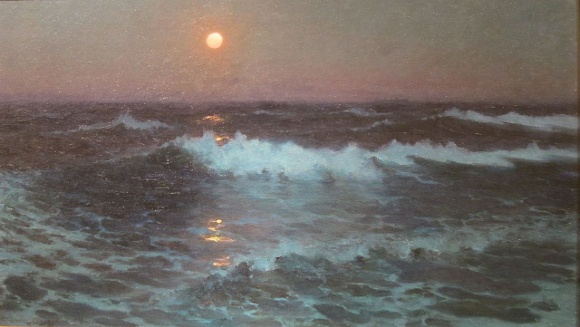John Keats, selected poems Contents
- Social and political context
- Religious and philosophical context
- Literary context
- Bright Star! Would I were steadfast as thou
- The Eve of St Agnes
- ‘Hush, hush! tread softly! hush, hush, my dear!’
- Isabella: or The Pot of Basil
- La Belle Dame Sans Merci
- Lamia
- Lines to Fanny (‘What can I do to drive away’)
- O Solitude, if I must with thee dwell
- Ode on a Grecian Urn
- Ode on Indolence
- Ode to a Nightingale
- Ode to Autumn
- Ode to Melancholy
- Ode to Psyche
- On First Looking Into Chapman’s Homer
- On Seeing the Elgin Marbles
- On the Sea
- Sleep and Poetry
- Time’s sea hath been five years at its slow ebb
- To Ailsa Rock
- To Leigh Hunt
- To Mrs Reynolds’s Cat
- To My Brothers
- To Sleep
- When I have fears that I may cease to be
When I have fears: Synopsis and Commentary
Synopsis of When I have fears
The speaker expresses his fears that he will die before he has had an opportunity to accomplish his work. He has so much he wants to write and possibly little time to put his thoughts on paper.
The speaker is extremely sensitive to beauty, whether manifested in the stars or in a woman seen by chance. The thought that he may die young and never be able to experience again either beauty or love makes him feel desolate, contemplating ‘nothingness’, the certainty of annihilation and with it the elimination of his fears.
 Commentary on When I have fears
Commentary on When I have fears
This poem was written between 22 and 28 January 1818.
Richard Woodhouse, the lawyer who gave literary and legal advice to Keats’ publishers, Taylor and Hessey, often discussed Keats’ poems with the poet. He noted that the phrases, ‘And think that I may never live to trace / Their shadows, with the magic hand of chance’:
give some insight into Keats’ mode of writing Poetry. He has repeatedly said…that he never sits down to write, unless he is full of ideas – and then thoughts come about him in troops … one of his Maxims is that if Poetry does not come naturally, it had better not come at all.
Glossary
glean’d: gathered the products of (literally collected all the corn in a harvest)
teeming: full of, or swarming with ideas
charactery: letters of the alphabet (a word first used by Shakespeare)
garners: archaic tern for granary
fair creature of an hour: a beautiful woman whom Keats had seen only fleetingly. Woodhouse stated that Keats was thinking of the same woman he had seen in the summer of 1814 at Vauxhall Gardens (see Time’s sea). He is not referring to Fanny Brawne, whom he met later in the same year he wrote this poem.
Investigating commentary on When I have fears
- What does Keats see or recognise as he stands alone ‘on the shore / Of the wide world’ that drives all thoughts of love and fame – as well as all personal concerns – from his head?
Sixteenth/seventeenth century world-renowned English poet and playwright of comedies, histories and tragedies.
Recently Viewed
-
John Keats, selected poems » When I have fears: Synopsis and Commentary
now -
John Keats, selected poems » On the Sea: Synopsis and Commentary
just now -
John Keats, selected poems » Lines to Fanny: Synopsis and commentary
just now -
A-Z: General definitions » Evil
just now -
John Keats, selected poems » To My Brothers: Language, tone and structure
just now -
John Keats, selected poems » Ode to Melancholy: Language, tone and structure
just now -
John Keats, selected poems » Religious expression
just now -
John Keats, selected poems » On Seeing the Elgin Marbles: Synopsis and Commentary
just now -
John Keats, selected poems » Ode to Autumn: Synopsis and Commentary
just now -
John Keats, selected poems » Lamia: Synopsis and commentary
just now -
John Keats, selected poems » Early literary influences on Keats
just now -
John Keats, selected poems » Religious and philosophical context
just now -
John Keats, selected poems » Sleep and Poetry: Language, tone and structure
1 minute ago
